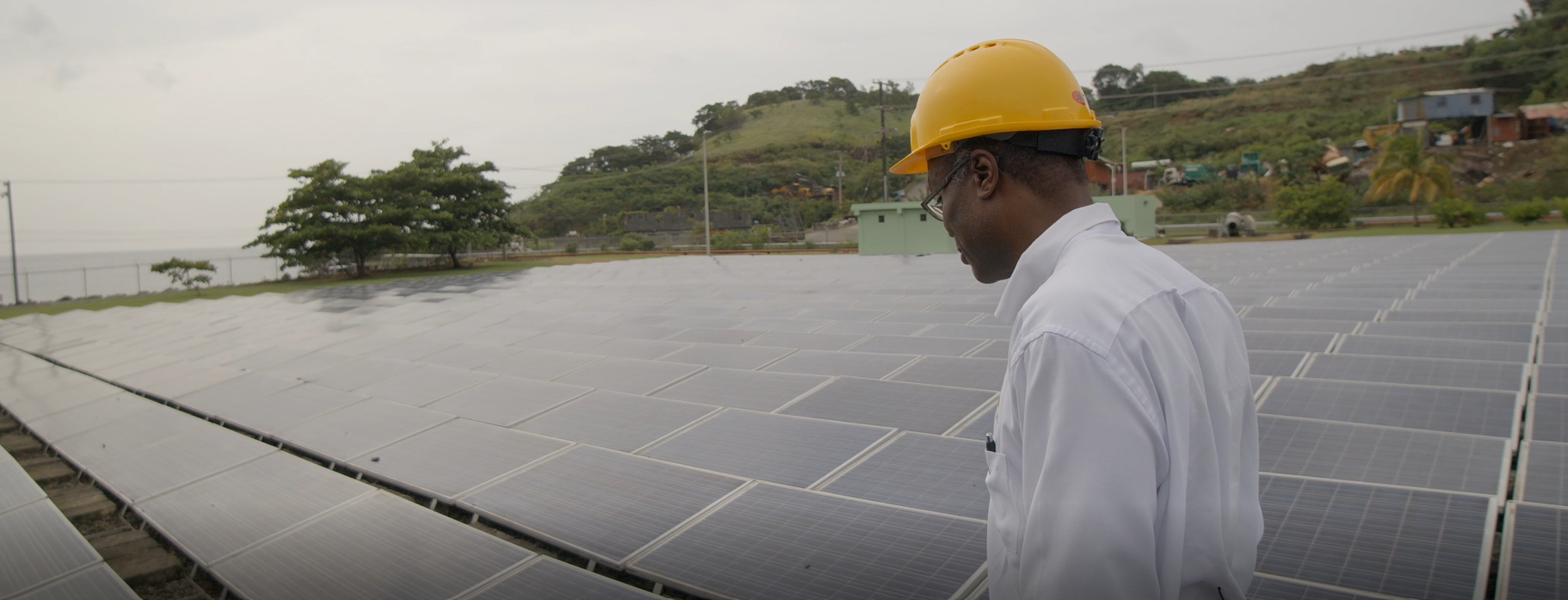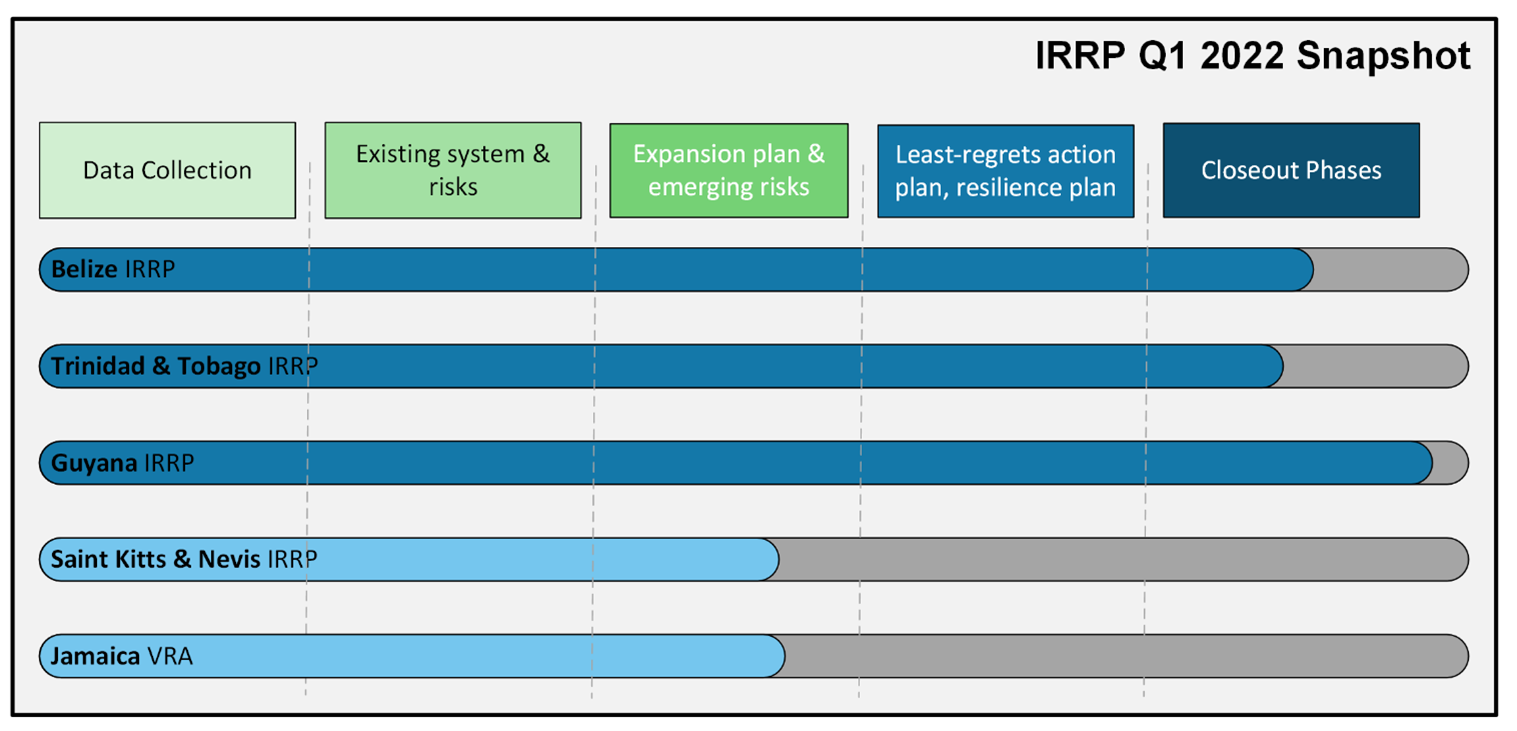
Background
Integrated Resource and Resilience Plans (IRRPs) are analytical plans which help determine the optimal development paths for the power sector. The development of an IRRP is a heavily data-driven activity and the quality of its insights are strongly dependent on the quality of the inputs and assumptions used.
This requirement for data and information is characteristic of IRRP processes, but not unique to them. There is growing recognition, reflected in changing norms and practices, that data-driven decision-making is critical to enhance the outcomes of our decisions and ensure that they align with our overarching goals and objectives, and responsive to our needs and circumstances.
Data: The Foundation of the IRRP
Previous quarterly updates have reported on the data and information feeding into IRRP processes. The list of data that underpins IRRP development is considerable. In reviewing the inputs which we require, it helps us to consider data thematically.
We first need to understand local laws and regulations, as well as international, regional, national, and sectoral policies, goals and commitments. These may include energy acts, power sector regulations, energy policies, economic development policies, decarbonisation goals and adaptation plans.
Next, we need to understand what currently exists in the sector. This means collecting data on how it operates, data on electricity consumers, socioeconomic statistics, historical consumption or sales data, generation plant information, transmission infrastructure details, distribution system information, risks and historical reliability. Under each of these summary areas are several, sometimes significant datasets. For one example, to obtain a good understanding of system energy consumption and demand patterns, several years of data would be desirable, disaggregated by sector and potentially geography. Even better would be an understanding of specific end-uses and refine our understanding of the specific activities driving demand.
The above list remains only partially complete. From this point we would begin to explore development of the sector under several potential future scenarios. This step calls for more data, information, insights, and assumptions. We can clearly see the matter of data is a non-trivial one.
The Caribbean Energy Statistics and Information Conference: Case Study of Application to IRRP Process
In recognition of the need for greater regional awareness of data and information collection, quality control, management, and utilisation, the CCREEE hosted the Caribbean Energy Statistics and Information Conference, from March 21st to 22nd, 2022. Participants were introduced to the value of reliable and up to date energy statistics for overall energy planning.
As part of the second day’s proceedings, the IRRP team presented on the importance of data, information and statistics to resource planning and participated in a panel discussion with other subject matter experts. The session emphasised how data collected in the sieCARICOM may be analysed to produce value-added products which may guide decision making.
This session set the foundation for the remainder of the agenda, which covered energy statistics, energy balance methodology and energy information management. The conference thus provided regional participants not just with an appreciation for these topical areas, but a platform, methodology and the capacity to improve their processes.
Takeaways
Ideally, the development of plans like IRRPs should not be the first step a country, sector or utility takes on its data, information, and statistics journey.
In practice however, the process of developing an IRRP can bring into stark relief the requirements of modern sectoral planning and what it takes to collect and manage appropriate, sufficiently granular, and accurate inputs to inform the critical decisions we must make.
As we make modern power sector planning processes the norm, shift mindsets on the importance of data-driven decision-making and enhance our processes around collection, preparation, and use of data, we will begin to see more responsive, informed decisions and significantly better outcomes.

About the CCREEE IRRP Programme
Within the CCREEE’s Climate Resilience Strategic Programme, the Centre is undertaking the development of IRRPs and VRAs for CARICOM Member States, as outlined above. These plans are facilitated by kind financial support from the German Federal Ministry of Economic Cooperation and Development (BMZ), the European Union (EU), the Austrian Development Agency (ADA), the United Nations of Industrial and Development Organisation (UNIDO), the Kingdom of Spain through AECID and the Caribbean Development Bank (CDB), and technical support from the German Corporation for International Cooperation (GIZ), through the Climate Resilient and Sustainable Energy Supply (Cli-RES) Project.
The CCREEE also benefited from support to the IRRP Programme’s capacity development initiatives from the US Agency for International Development (USAID), through the National Renewable Energy Laboratory of the US Department of Energy (NREL).